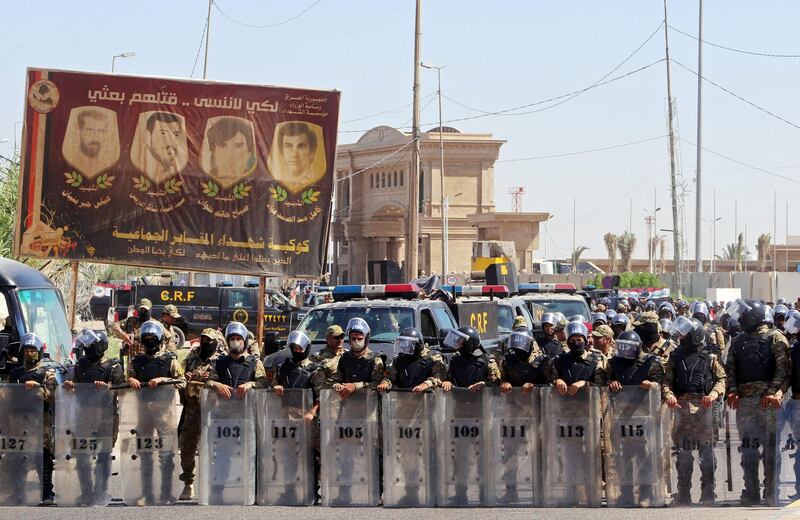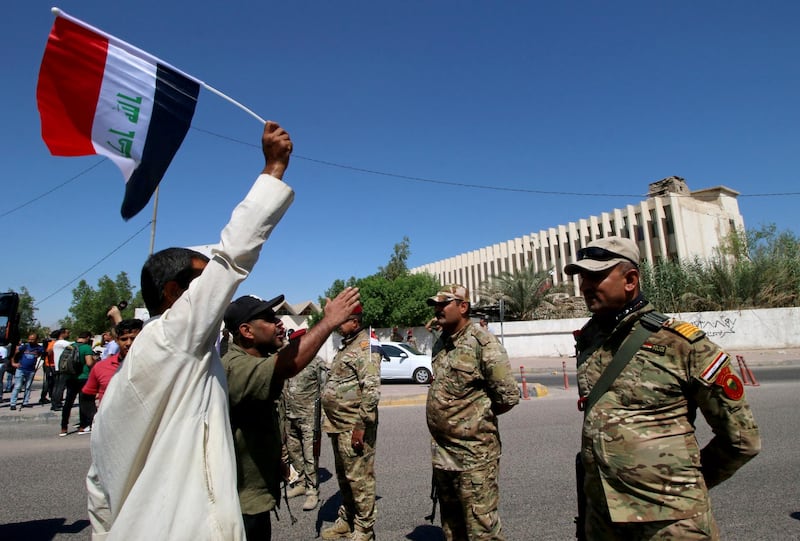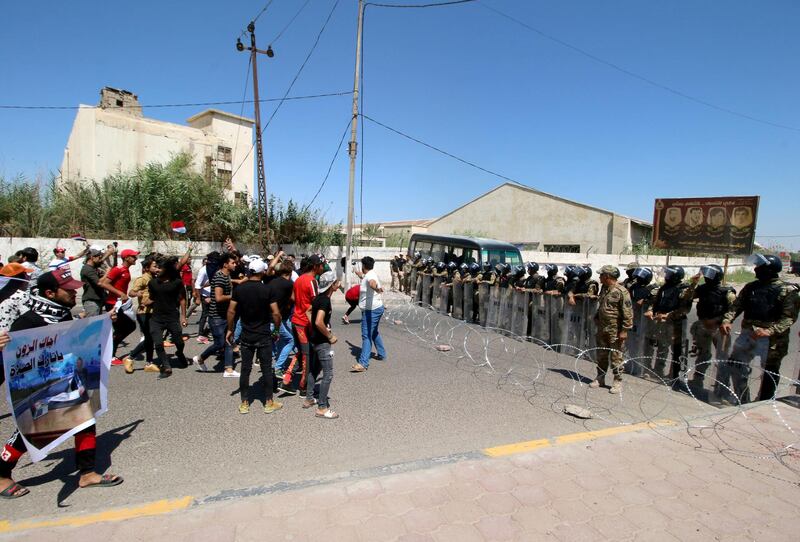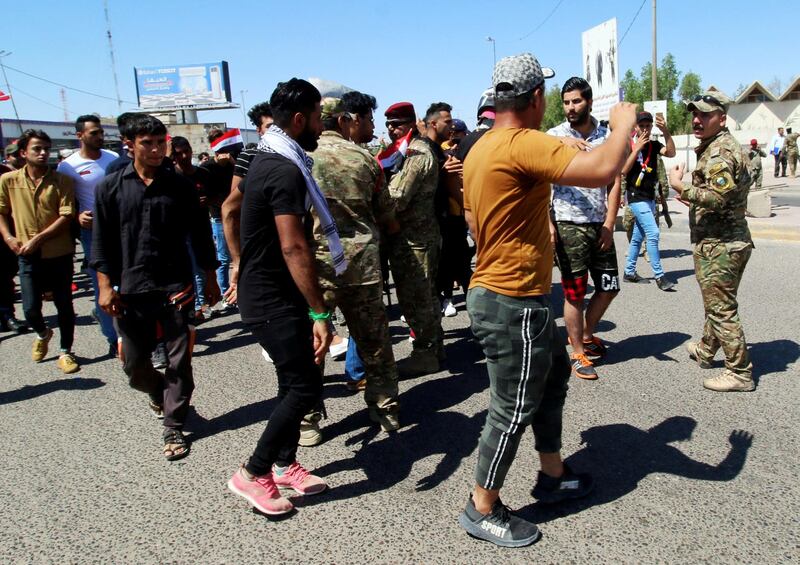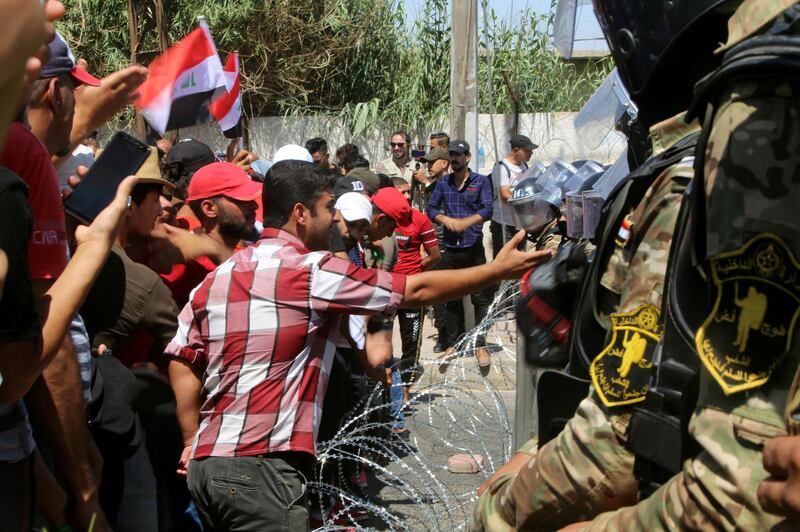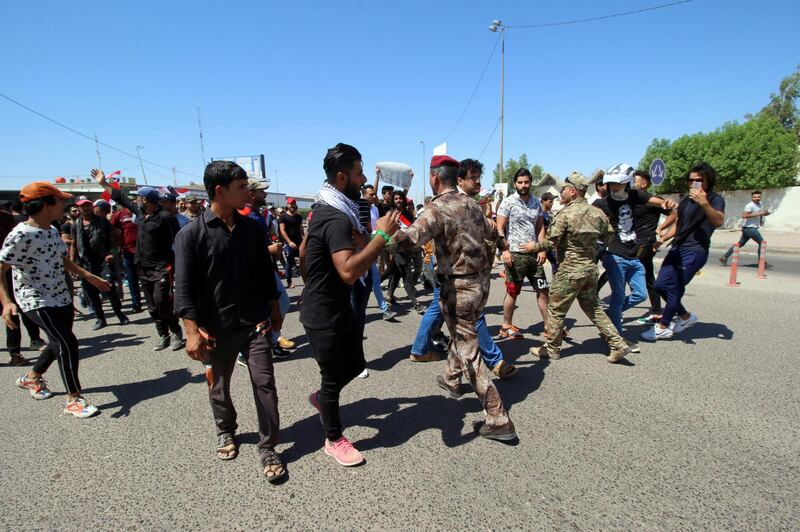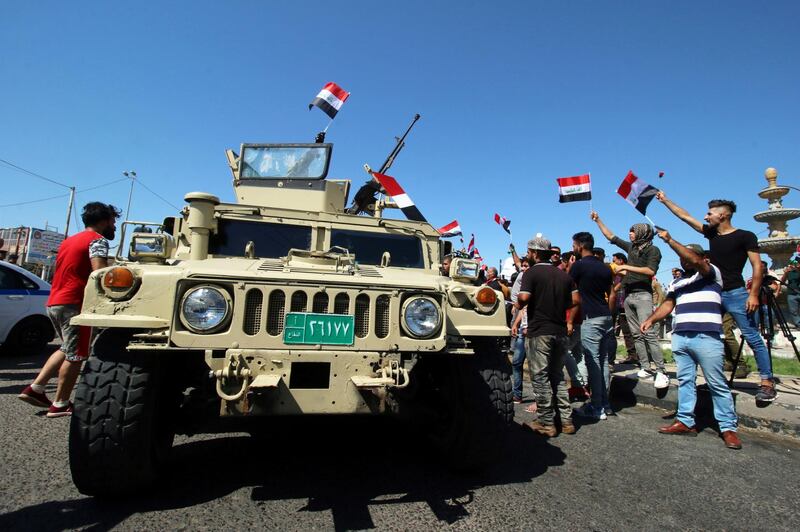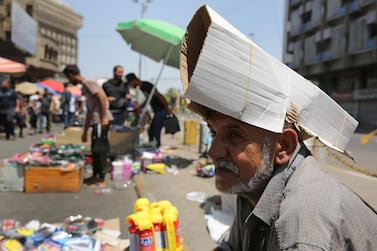Basra's summer protest movement returned on Thursday as scores of demonstrators gathered outside the southern Iraqi city's administrative headquarters to vent anger about poor services and a lack of jobs.
“Thieves!” the crowd chanted, in apparent reference to political corruption.
“The brave create the revolution and sinners steal it,” shouted the red text on one protester's poster, under pictures of three prominent Basrawi politicians.
The temperature was already approaching 40°C at 9am, when scores of young men gathered at a roundabout near the council building in central Basra, handing out miniature Iraqi flags topped with roses.
The demonstration took place outside the new headquarters, after the old one was torched during 2018’s months-long protest cycle in which at least 10 people were killed.
Nearby, elderly protester Ishaab Abdul Jareem sat on a stool, a piece of cardboard propped on his head as a makeshift sunhat.
“Basra’s people and Iraq’s people in general have been destroyed and can’t raise their voices,” he said.
Scores of riot police were deployed at the protest site but the demonstration remained peaceful. There were no clear leaders, but media activists posted pictures and video on social media.
Protesters blamed the plethora of political parties in Basra’s authorities for the city’s problems, from a lack of job opportunities to rubbish-strewn streets and unreliable utilities.
“I’ve returned to protest because our demands were not met,” said Karar Haider Maliki, 18, as he showed the hand where he said security forces shot him during last year’s demonstrations.
“There are political parties – there is no government. There are Iran’s parties, our government is an Iranian government,” he added, listing Tehran-backed groups represented in Basra’s politics. “Our leaders welcome Iran. But we don’t; we reject them.”
Basra is Iraq’s third-largest city and the surrounding region produces between 85 and 90 per cent of the country’s oil wealth. But that has not translated into riches for most of its 1.3 million residents.
The annual protests go back to at least 2015 and intensified last summer, when more than 100,000 people were hospitalised with water-borne diseases.
Services have improved since last year’s violently suppressed demonstrations, according to Basra’s deputy governor Dr Dhurgham Al Ajwady.
“In previous years we have had an electricity crisis. This year, up until now, for the city centre, Basra’s council has succeeded in supplying between 20 and 24 hours of electricity a day,” he said in an interview on Wednesday, before the protests. “Basra is now better than all other regions of Iraq when it comes to electricity supply.”
But residents still report hours-long outages.
“It’s the same thing," they insisted when asked to compare electricity supplies this summer and last.
Mr Al Ajwady said the local government had also distributed drinking water and made upgrades to water stations since last year.
But jobs in Basra are still scarce. None of a group of a dozen protesters the The National spoke to on Thursday reported having steady work. Some blamed Basra's oil companies hiring foreign workers from South Asia instead of locals.
“Indians and Bangladeshis come to work in Iraq and we Iraqis have no work, nothing,” one young man said angrily.
Unemployment is a major issue across Iraq, where the southern provinces’ poverty levels surpass 30 per cent.
Basra has historically been a hub from which protests have spread to other southern Iraqi cities. Observers remain unconvinced that Basrawi and Iraqi politicians more widely will respond to the protesters’ demands. That means the demonstrations could spread as the summer wears on, especially if the electricity supply fails to hold up.
"The conflicts between the various parties in Basra's council are over power-sharing and authority, not meeting the people's demands," Balsam Mustafa, a researcher on Iraqi politics, told The National. "The same is true in the rest of Iraq."
The protests came against a backdrop of increasing regional tensions Iraq between the United States and Iran that are playing out in Iraq. Two rockets hit oil compounds around Basra on Wednesday, after multiple previous strikes on military sites across the country in recent weeks.
Ms Mustafa said this may also be used by politicians as an excuse not to focus on solving everyday problems.
“The authorities have failed to tackle the security issue in Iraq, so they can’t really be using this as an excuse, but some politicians might, in their rhetoric, because they always lie and blame one and other," she said. “It wouldn’t be convincing for people as they would know that it’s a lie.”
As Basrawis blame political parties for neglecting their city, they continue to suffer.
Karar Maliki, the 18-year-old demonstrator, grimaces when asked what he wants in the future. “What do I want? I want to commit suicide. I want to end it.”
